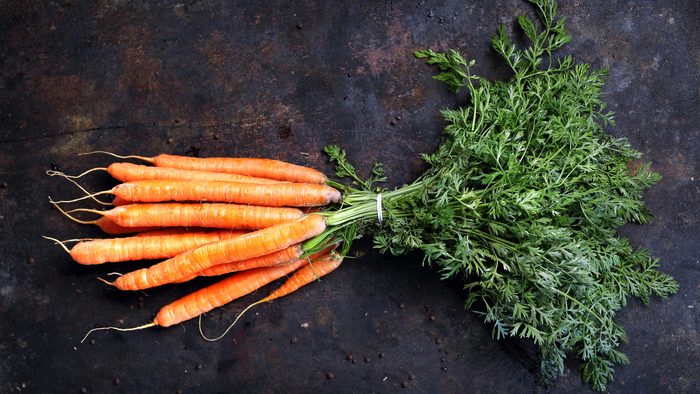
Carrots give chemo a boost
Carrots should be a staple in every diet for cancer patients. Certain plant compounds—also found in parsley—can make chemotherapy more effective by stopping a mechanism in the body that can interfere with cancer treatment, according to a 2014 study. Researchers hope these foods “could be used to complement conventional treatments to potentially deliver better results for patients,” according to senior scientist Arjan Scheepens, PhD, a senior scientist at the New Zealand Plant & Food Research. Here are more astounding health benefits of carrots you never knew.
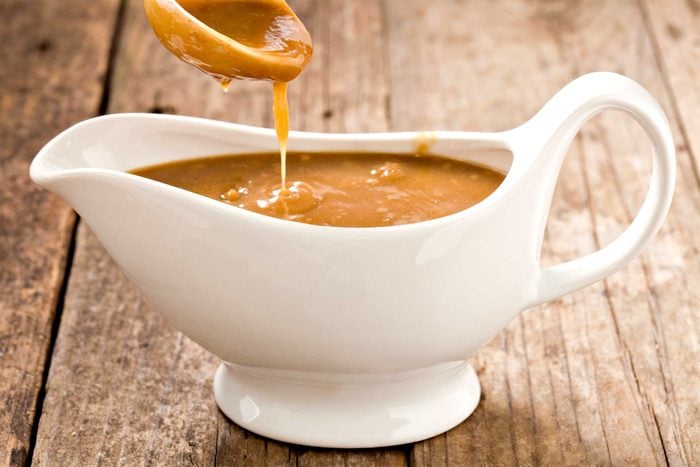
Gravy combats dry mouth
If your dry mouth—a common side effect of chemo—makes swallowing difficult, try moistening your food by covering it with sauces, gravies, or even low fat milk, the American Cancer Society (ACS) suggests. Liquefying foods in a blender will also help your meal go down a little easier. Give this vegan mushroom gravy recipe a try.
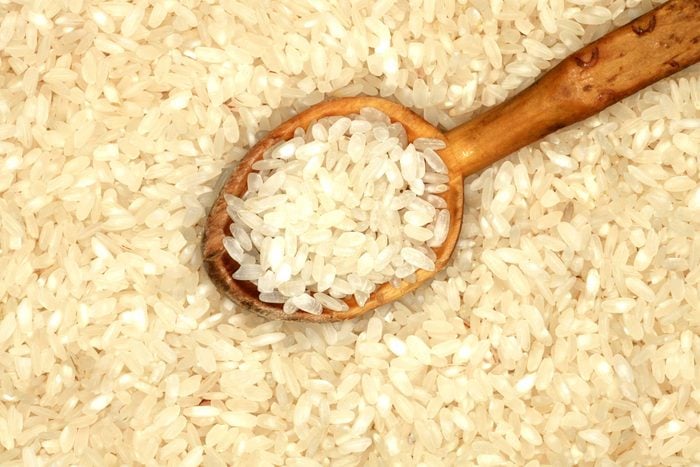
Rice and bananas for diarrhea
Bland foods like rice, bananas, cooked apples, and dry toast will help bind your stool if you have diarrhea from chemotherapy, according to information from Memorial Sloan Kettering Cancer Center in New York City. Avoid fatty foods, raw fruits, and whole-grain products, which can make diarrhea worse. You can also try these home remedies for diarrhea.
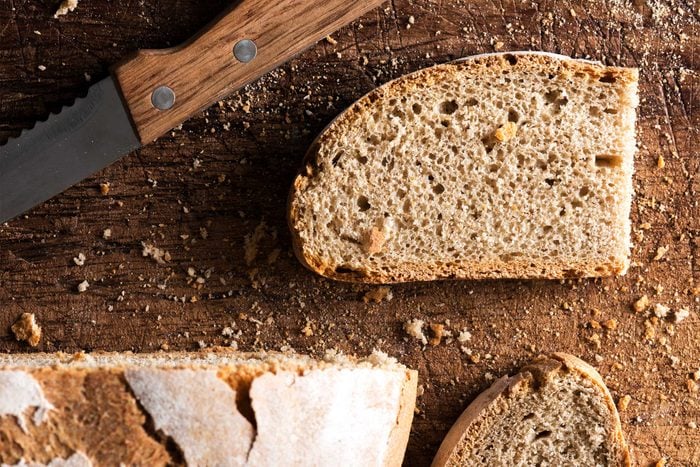
Whole grains battle constipation
On the other hand, if you are constipated, drinking plenty of fluids and eating foods high in insoluble fiber, such as whole-grain bread or cereals, dried fruits, and dried beans or peas, will aid your digestive system. The National Cancer Institute (NCI) recommends drinking eight to 12 cups of liquid a day for those undergoing cancer treatment. Here are other sneaky ways you might be making yourself dehydrated.
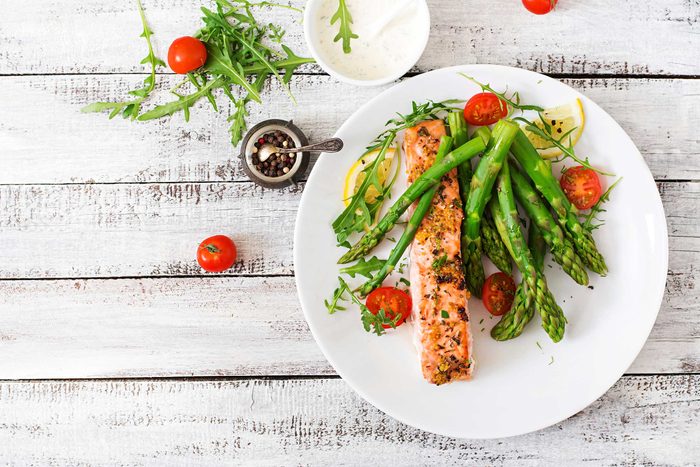
Small meals help with appetite loss
Loss of appetite is a common side effect of chemotherapy, but instead of forcing yourself to eat three big meals, eat five or six smaller meals throughout the day to stay properly nourished and energized, the ACS suggests. Adding protein supplements and higher-calorie foods to your diet will help you sustain a healthy weight. However, every diet for cancer patients looks different, so consult your doctor or, even better, a trained dietitian, to personalize your meals according to your condition, diagnosis, and needs. Here’s what chemotherapy is really like, according to cancer survivors.
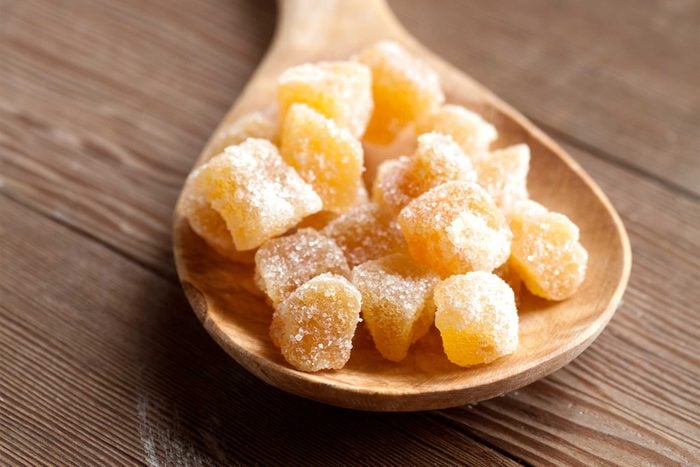
Ginger candy eases nausea
Chemo often leaves you with a queasy stomach, but ginger candy and lemon drops may work like a charm. Suck on them before eating, or sip on some flat ginger ale or cola during your meal, the ACS states. This will help settle your stomach. Just be aware that ginger “candy” may not actually taste like candy – it could be zingy hot. These are more natural remedies for an upset stomach.
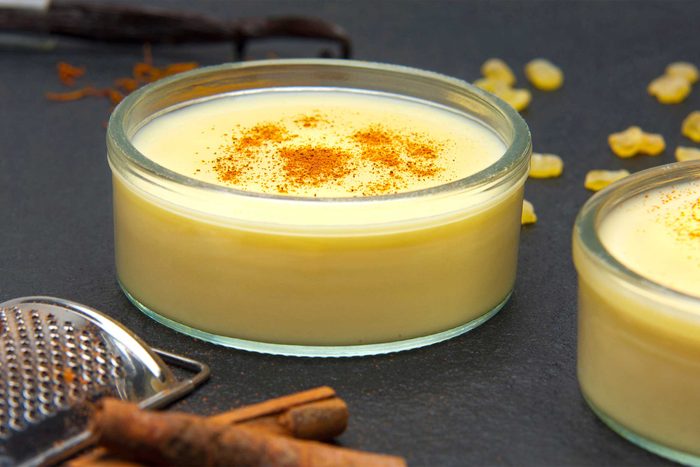
Custard for mouth sores
Mouth sores can make it painful to eat even the softest of foods. If treatment has left your mouth in pain, try pureed foods that are easy to swallow, such as custards, rice, eggs, porridge, and soups, the ACS suggests. The blander the better, since salt or spices can make sores even more painful. Avoid sharp or crunchy foods like crackers, chips, and raw vegetables, as well as spicy foods like hot sauces, curry dishes, salsa, and chili peppers, which also irritate sores.
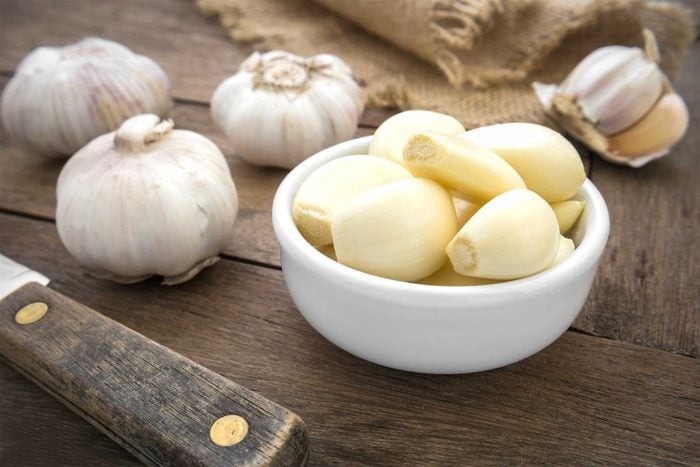
Onion and garlic boost your immune system
A healthy diet for cancer patients always includes onions and garlic. Grilled, cooked, or raw, these cancer fighters contain high levels of antioxidants, which have been shown to stimulate the immune system’s natural defenses against cancer. The latest research shows that garlic, onions, leeks, chives, and shallots reduce the risk of colorectal cancer. Specifically, adults who consumed the most allium vegetables had a 79 percent lower the risk of developing colorectal cancer than those who consumed the least. Here are more foods with cancer-fighting abilities.
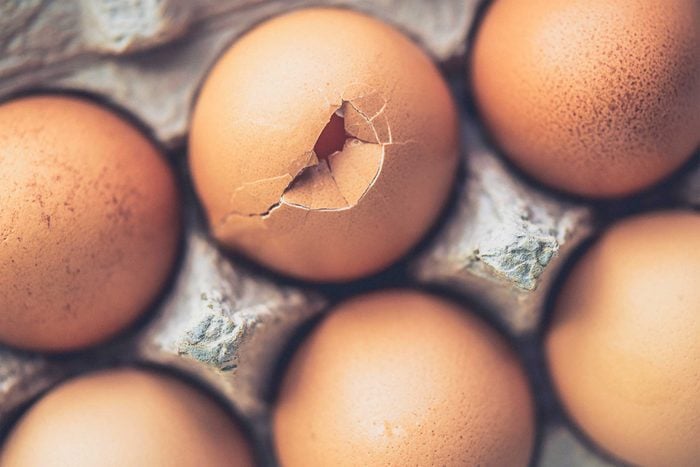
Lean protein maintains energy and muscle
The NCI recommends eating more protein when undergoing chemotherapy to give you energy and keep your muscles strong when treatment is draining. Opt for lean proteins like eggs, fish, and chicken. Many people with cancer find that red meat takes on an unpleasant metallic taste. Don’t miss these other things cancer patients wish you knew.
